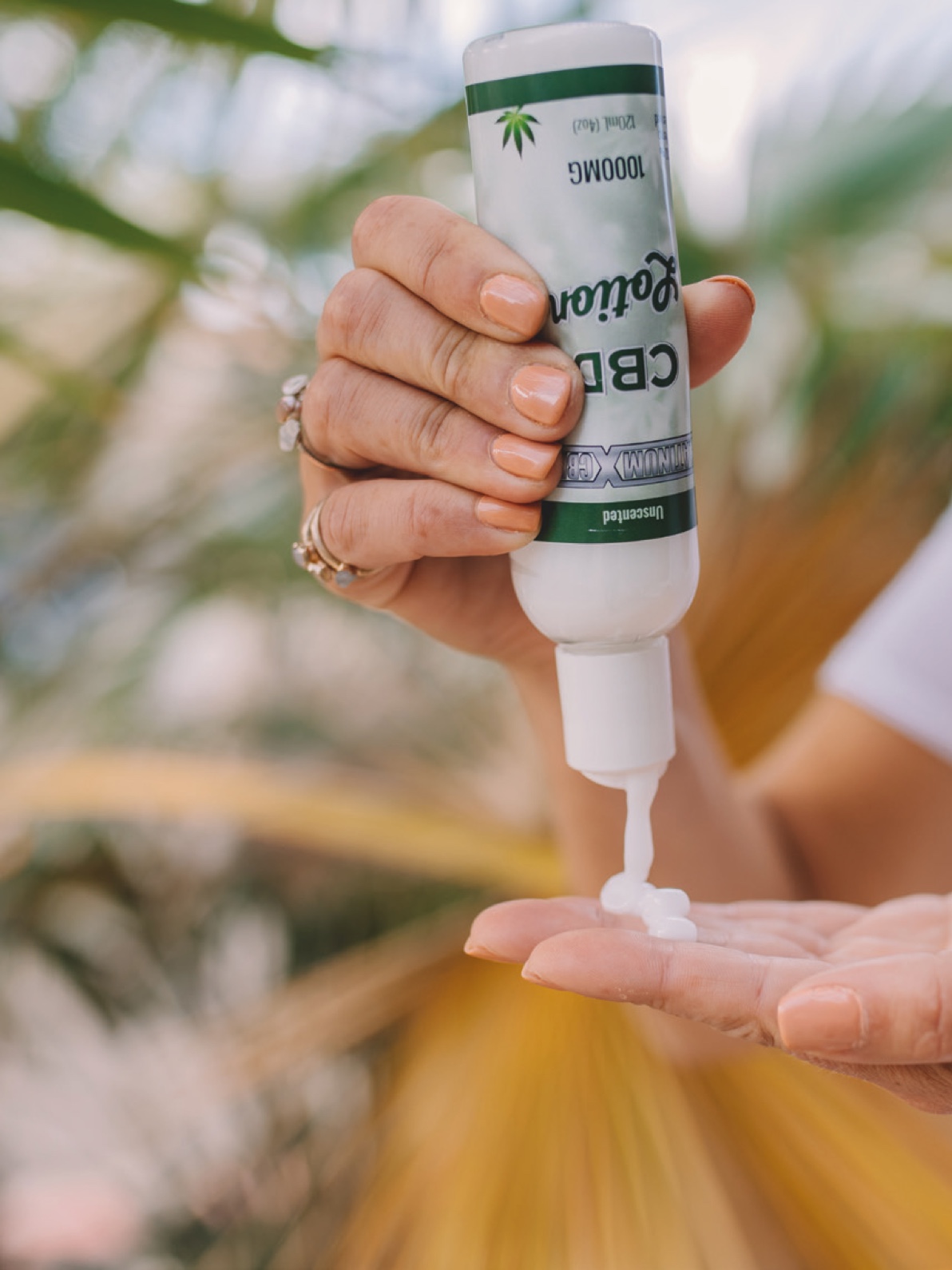COLUMN: SURFACTANTS INSIGHTS
Regulatory and compliance – Far from boring
KEYWORDS —
Abstract
Studies of major depressive disorder have been correlated with reduced Lactobacillus and Bifidobacteria and symptom severity has been correlated to changes in Firmicutes, Actinobacteria, and Bacteriodes. Gut microbiota that contain more butyrate producers have been correlated with improved quality of life (1).
A study in healthy women providing probiotic yogurt for four weeks showed an improvement in emotional responses as measured by brain scans (2). A subsequent study by Mohammadi et al. (3) investigated the impacts of probiotic yogurt and probiotic capsules over 6 weeks and found a significant improvement in depression-anxiety-stress scores in subjects taking the specific strains of probiotics contained in the yogurt or capsules. Other studies with probiotics have indicated improvements in depression scores, anxiety, postpartum depression and mood rating in an elderly population (4-7).
Other studies have indicated a benefit of probiotic supplementation in alleviating symptoms of stress. In particular, researchers have looked at stress in students as they prepared for exams, while also evaluating other health indicators such as flu and cold symptoms (1). In healthy people, there is an indication that probiotic supplementation may help to maintain memory function under conditions of acute stress.
“
“A study in healthy women providing probiotic yogurt for four weeks showed an improvement in emotional responses as measured by brain scans”
Biotic ingredients with a proven skin anti-ageing effect
After almost 40 years in and around the business of surfactants, I have consistently considered some topics to be, well, boring, quite frankly. Regulatory and the broader Compliance is one such area. Why? I think primarily it is the normal tendency of an entrepreneur to not want to recognize restrictions on freedom, no matter how justified. A secondary reason is that chemical regulations, like the tax code, often seem to be designed and applied in an arbitrary manner, not built on a framework of logic or even sensible precedent. I now feel compelled to make clear here that I no longer consider the Regulatory and Compliance fields to be in the least boring. On the contrary, they are of critical strategic importance, and thus extremely interesting, for three major reasons.
First regulatory activity by governments has increasingly impacted the ability of companies in our supply chain to make and use surfactants, some of which are, critical to modern health, hygiene and industry. Recent examples include New York State restrictions on the dioxane content of consumer products and EU restrictions, proposed by Germany, on the dioxane content of surfactants.
Second, companies have increasingly proactively sought to regulate their own activities with respect to ingredients, in anticipation of, or even completely independent of, regulation by government bodies. Among many examples is that in 2020, when Unilever announced it would replace 100% of the carbon derived from fossil fuels in its cleaning and laundry product formulations with renewable or recycled carbon.
Third, consumers, ever more aware of or interested in, the composition of products that they use on a daily basis, are taking steps to avoid certain compounds or even entire classes of compounds formulated therein. The whole “sulfate free” phenomenon is an example of this consumer sentiment in action.
Such tripartite pressure on the industry requires engagement at the highest levels from companies. This puts the Regulatory and Compliance function on an equal footing with other key strategic components of a company’s, management such as manufacturing or R&D.

Biotic ingredients with a proven skin anti-ageing effect
Studies of major depressive disorder have been correlated with reduced Lactobacillus and Bifidobacteria and symptom severity has been correlated to changes in Firmicutes, Actinobacteria, and Bacteriodes. Gut microbiota that contain more butyrate producers have been correlated with improved quality of life (1).
A study in healthy women providing probiotic yogurt for four weeks showed an improvement in emotional responses as measured by brain scans (2). A subsequent study by Mohammadi et al. (3) investigated the impacts of probiotic yogurt and probiotic capsules over 6 weeks and found a significant improvement in depression-anxiety-stress scores in subjects taking the specific strains of probiotics contained in the yogurt or capsules. Other studies with probiotics have indicated improvements in depression scores, anxiety, postpartum depression and mood rating in an elderly population (4-7).
Other studies have indicated a benefit of probiotic supplementation in alleviating symptoms of stress. In particular, researchers have looked at stress in students as they prepared for exams, while also evaluating other health indicators such as flu and cold symptoms (1). In healthy people, there is an indication that probiotic supplementation may help to maintain memory function under conditions of acute stress.

Consider the seemingly simple case of dioxane content mentioned above. 1,4 dioxane is a very well characterized substance with a wealth of published data concerning its health and environmental properties. However, the decision as to whether, when and how a company should use or make ingredients containing dioxane is not simple. The regulation of dioxane has significant implications for the surfactant industry, as it requires manufacturers to either reformulate their products with alternative or low-dioxane surfactants, or to invest in purification technologies to remove dioxane from their existing surfactants. These options entail different costs, benefits, risks, and trade-offs, such as performance, safety, sustainability, and consumer acceptance. Layered on top of all this are reputational considerations, particularly for companies in the consumer product supply chain. Moreover, the regulation of 1,4-dioxane is not uniform across states and countries, and there is substantial uncertainty about the future federal, state and international standards. Therefore, manufacturers need to monitor the regulatory landscape and anticipate the potential changes and impacts on their business.
Consider also the case of Product Carbon Footprint (PCF). The measurement and reporting of product carbon footprint (PCF) is becoming a crucial aspect of sustainability for the chemical industry as a whole and the surfactant industry in particular. PCF is the amount of greenhouse gas emissions associated with the life cycle of a product, from raw material extraction to end-of-life disposal. PCF information can help consumers, regulators, and investors to assess the environmental impact and performance of a product, and to compare it with alternatives. PCF can also help manufacturers to identify and implement opportunities for reducing emissions and improving efficiency in their production processes and supply chains. PCF is a big deal.
However, despite PCF being a clear quantitative measure, its actual measurement and reporting is not at all simple. It requires a comprehensive and consistent methodology that covers the entire life cycle of a product, and that accounts for the variability and uncertainty of the data and assumptions involved. It also requires a transparent and credible communication strategy that conveys the results and the limitations of the PCF analysis to all interested stakeholders. Finally, it requires a continuous and proactive monitoring and improvement of the PCF performance, as well as a responsiveness and adaptability to the changing market and customer expectations. PCF is too important to be addressed in any way other than cross functionally.
Given the complexity and importance of the aforementioned 2 issues related to surfactants and other ingredients going into consumer products, it is essential that these matters, and others like them, are managed at the very highest senior levels, independent of R&D, manufacturing, or other functions. And most importantly, free of pressures to cut corners. The Regulatory and Compliance function should have the authority and resources to oversee and coordinate the company’s strategy and actions to measure, report, communicate and collaborate with the relevant stakeholders, such as customers, suppliers, NGOs, and standard-setting organizations. This key function should also have the expertise and vision to evaluate and influence the scientific and technical aspects of methodologies. Furthermore, the Regulatory and Compliance function should have the leadership and innovation to drive the company’s culture and values in the right direction and to look for good opportunities to create competitive advantage and differentiation for the company in the market.
So, in conclusion: Regulatory and Compliance are boring no longer in my eyes. Perhaps you will consider me late to this realization, especially if you work in the field already. For that I can only apologize and commit to right the balance in giving this field due consideration in the courses and conferences I produce and the articles I write, including this one.

Studies of major depressive disorder have been correlated with reduced Lactobacillus and Bifidobacteria and symptom severity has been correlated to changes in Firmicutes, Actinobacteria, and Bacteriodes. Gut microbiota that contain more butyrate producers have been correlated with improved quality of life (1).
A study in healthy women providing probiotic yogurt for four weeks showed an improvement in emotional responses as measured by brain scans (2). A subsequent study by Mohammadi et al. (3) investigated the impacts of probiotic yogurt and probiotic capsules over 6 weeks and found a significant improvement in depression-anxiety-stress scores in subjects taking the specific strains of probiotics contained in the yogurt or capsules. Other studies with probiotics have indicated improvements in depression scores, anxiety, postpartum depression and mood rating in an elderly population (4-7).
Other studies have indicated a benefit of probiotic supplementation in alleviating symptoms of stress. In particular, researchers have looked at stress in students as they prepared for exams, while also evaluating other health indicators such as flu and cold symptoms (1). In healthy people, there is an indication that probiotic supplementation may help to maintain memory function under conditions of acute stress.
References and notes
- Arenas-Jal M, Suñé-Negre JM, Pérez-Lozano P, García-Montoya E. Trends in the food and sports nutrition industry: A review. Critical Reviews in Food Science and Nutrition. 2020;60(14):2405-21.
- Angus A. Top 10 Global Consumer Trends for 2018: Emerging Forces Shaping Consumer Behaviour: Euromonitor International; 2018 (Available from: https://tourismaccommodation.com.au/wp-content/uploads/2018/03/Top10-Global-consumer-trends-for2018.pdf.
- Labrecque LavdE, Jonas and Mathwick, Charla and Novak, Thomas and Hofacker, Charles. Consumer Power: Evolution in the Digital Age. Journal of Interactive Marketing 2013;27.
- Dunford M. Fundamentals of Sport and Exercise Nutrition 2010.
- Galaz GA. Chapter 20 - An Overview on the History of Sports Nutrition Beverages. In: Bagchi D, Nair S, Sen CK, editors. Nutrition and Enhanced Sports Performance. San Diego: Academic Press; 2013. p. 205-10.
- Bird SP. Creatine supplementation and exercise performance: a brief review. J Sports Sci Med. 2003;2(4):123-32.
- Schofield L. Vitamin Retailer The Dietary Supplement Industry Leading Magazine 2022 (Available from: https://vitaminretailer.com/activating-your-fitness-nutrition-department/.
- Newman JI, Xue H, Watanabe NM, Yan G, McLeod CM. Gaming Gone Viral: An Analysis of the Emerging Esports Narrative Economy. Communication & Sport. 2020:2167479520961036.
- Tartar JL, Kalman D, Hewlings S. A Prospective Study Evaluating the Effects of a Nutritional Supplement Intervention on Cognition, Mood States, and Mental Performance in Video Gamers. Nutrients. 2019;11(10).

